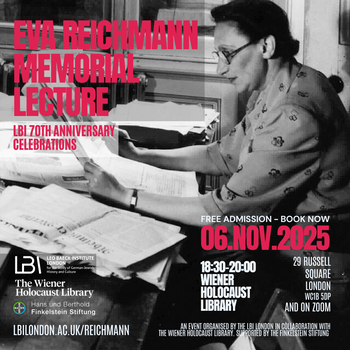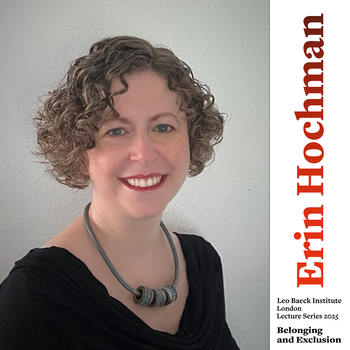Dr Monja Stahlberger is the Leo Baeck Institute London’s Postdoctoral Research Fellow for 2025–26. Her current research project explores how German-Jewish exile families have transmitted cultural memory and negotiated identity across borders and generations, from the National Socialist period to the present. Drawing on archival materials and oral histories, her study uncovers how individual narratives reflect broader patterns of cultural adaptation, trauma transmission, and transnational belonging within German-Jewish exile communities.
The project adopts a transnational comparative approach, examining ego-documents such as diaries, memoirs, and oral histories alongside organisational records and academic publications. This methodology enables the analysis of how different national contexts shaped the preservation and transformation of German-Jewish cultural memory. Archival evidence reveals processes of identity negotiation that challenge simple categories of national…
more














